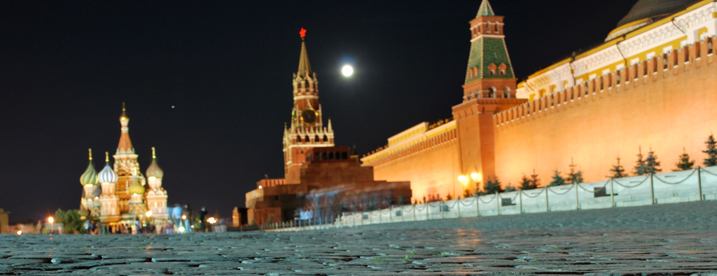
Endemic Corruption In and Illicit Flows From Russia
By Dev Kar, January 20, 2011

New Global Financial Integrity Report Reveals Russia is Losing US$50 Billion Annually in Illicit Outflows
Cross-posted from the blog of the Task Force on Financial Integrity and Economic Development.
Recent news from Russia confirms that corruption is a serious issue that, unless curbed, can prevent the country from emerging as a global economic powerhouse. Corruption in Russia has been a hangover from the Soviet Union days. It is just that the forces of globalization have provided old hands and the up-and-coming younger generation of Russians with unprecedented opportunities to make money under the table. Of course, the exponential increase in Russia’s natural resource exports (such as petroleum products and natural gas) has not helped matters as far as overall governance is concerned. There is simply too much money in the hands of the too few.
The history of advanced nations shows that, while each had to find its own way to fight this scourge of illicit capital, the rule of law has always been essential in efforts to raise living standards. In contrast, significant weaknesses in overall legal, institutional, corporate and political governance in many emerging market countries is posing an increasingly serious challenge for governments to meet the aspirations of the poor for a better life.
A recent study by Global Financial Integrity found that the faster rates of economic growth in India since economic reform started in 1991 have not been inclusive. Even as economic growth lifted millions out of poverty, wealth accrued disproportionately in the upper income brackets. In fact, further research might well show that while growth rates have been on the uptick in Brazil, Russia, China, and other emerging market countries, that happy scenario has neither spawned commensurate improvements in the living conditions of their very poor nor provided an incentive for better governance.
Indeed, as in India, widespread corruption, reflected in a growing underground economy, together with growth concentrating wealth in the hands of a few, is driving illicit capital from Russia. A new GFI study released this week shows that in the decade ending 2009, Russia has generated an increasingly larger share of all illicit capital from developing countries. Such outflows average over US$50 billion annually during this period—likely a significantly understated estimate given the limitations of economic methods to capture all sources of ill-gotten capital. The overwhelming majority of the cross-border transfer of illicit capital from the country takes place through the balance of payments and not through trade mispricing. In fact, the traditional method of estimating illicit flows would net out illicit inflows through trade mispricing which would reduce gross outflows sufficiently to give the misleading impression that Russia is a well-governed, corruption-free, country. Because the Traditional method of estimating capital flight from developing countries gives credit to where it is not due (namely netting out illicit inflows from outflows as if illicit inflows somehow benefit a country), we see the underlying methodology as deeply flawed.
To curb corruption, Russia must take a long hard look at itself beginning with those in power. Muddling along is not an alternative for there is a real danger that endemic corruption will beget further social unrest.
Photo: ![]()
![]()
![]() Some rights reserved by Alexanda Hulme
Some rights reserved by Alexanda Hulme
Cross-posted from the blog of the Task Force on Financial Integrity and Economic Development.
